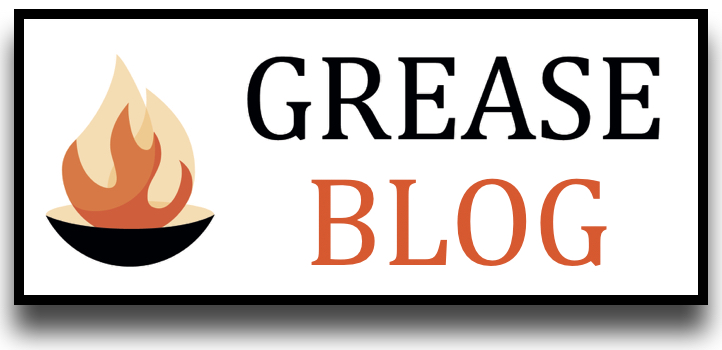N1 GREASE Newsletter – March 2019
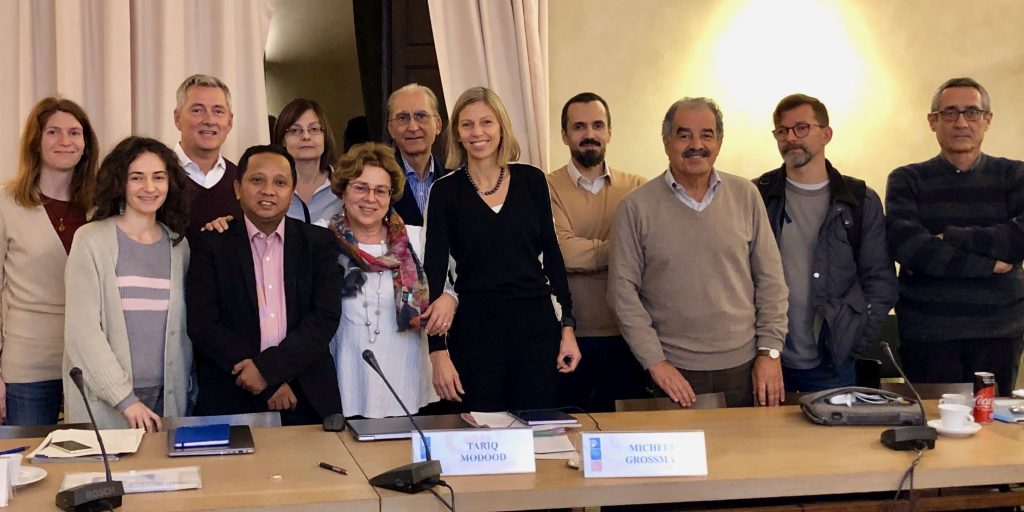
Welcome to the first GREASE newsletter! This launch edition gives you an idea where the project is coming from, how the consortium has spent the first six months, and what we hope to accomplish during the three years ahead.
Since officially getting started last October, we have met face-to-face as a consortium for the very first time, birthed our digital communication platforms, started work on our “MOOCs”, commissioned two films on religious diversity and radicalisation, and began implementing an ambitious research agenda on four continents.
And this is just the beginning. As project coordinator Anna Triandafyllidou explains in a wide-ranging interview (below), GREASE will produce “solid knowledge on over 20 countries around the world, on how they govern religion and religious diversity and address radicalisation”. Though focused thoroughly on research, the project is also an example of science diplomacy in action. Bringing together eminent scholars from different geographical (and cultural) hemispheres, GREASE is part of a larger effort aimed at “undoing global hierarchies of cultural and knowledge production – hierarchies constructed around flawed notions about the ‘West’ and ‘the rest’.
Those of us involved in the GREASE project are genuinely excited about the journey we’ve embarked on. We invite you to follow our progress. All of our concept papers, blog articles, country briefings, films and online learning courses will be freely available on our website. You can also keep track of our many activities (including lectures, presentations and workshops) by following us on social media. And every few months we’ll be sure to bring you up to date with a fresh edition of our newsletter. So stay with us – there’s much more to come!
Interview with GREASE Coordinator Anna Triandafyllidou
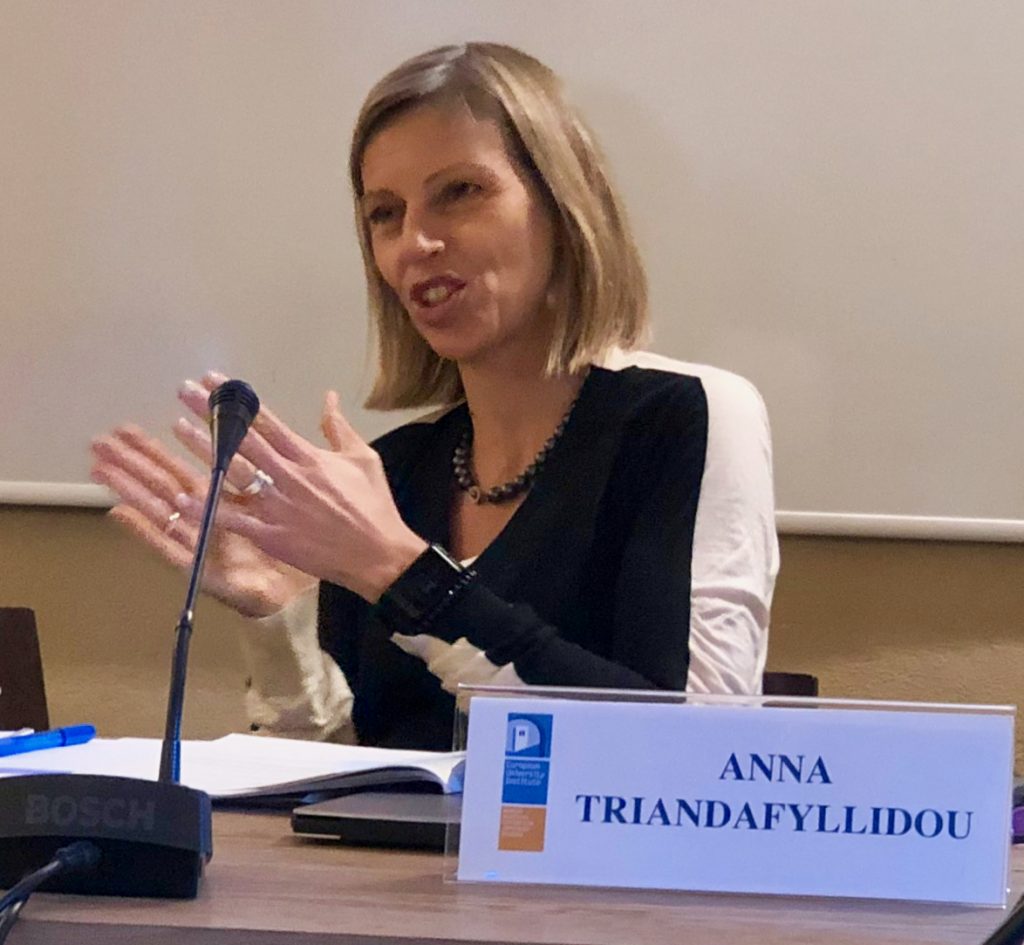
How did the GREASE project get started?
The GREASE project developed out of a shared interest among academics and policymakers in the central question: How can societies accommodate religious diversity and prevent radicalisation? That interest, of course, reflects growing awareness of ethno-religious heterogeneity as a consequence of migration. People in Europe and Asia are increasingly reflecting on the place of religion in public life and wondering how religious diversity can be successfully governed.
European countries seem to have exhausted their ideas and policies about how to best govern and accommodate religious diversity. Faced with Islamic terrorists and returning foreign fighters, many governments (and even scholars) are at a loss. We are compelled to ask ourselves: What went wrong? Why are young people using and abusing religion to justify violent extremism?
In my own search for answers, I began to look beyond Europe. In the spring of 2015 I teamed up with my colleague Tariq Modood to organise a conference around these questions. We explicitly sought to engage with non-European scholars, paying special attention to different approaches and experiences from Asia. Indeed, it is in Asia that we find both the world’s largest functional democracy, India, and the world’s most populous Muslim majority country, Indonesia. So this is how we got started on the path that would lead to the GREASE project. READ MORE
Kick-off Meeting
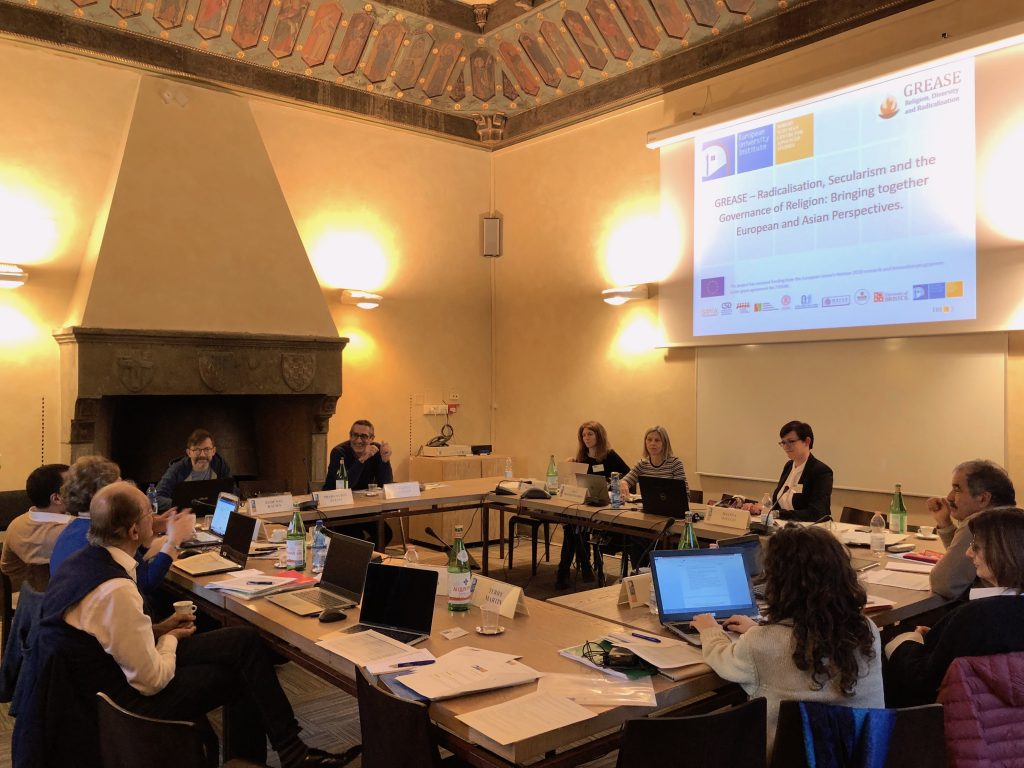
No fewer than nine countries were represented at the GREASE kick-off meeting December 10 & 11 at the European University Institute in Florence, Italy. Bringing together consortium partners from five EU member states (Bulgaria, Italy, Germany, Lithuania and the UK), our initial meeting also included project participants from institutions in Australia, Indonesia, Morocco and Turkey.
Though unable to be there in person, our partners in India and Malaysia contributed virtually. Further input was received from our project officer who delivered a live digital presentation from the European Commission’s Research Executive Agency in Brussels.
As you might expect, our kick-off event focused on communication, GREASE’s analytical framework and conceptual issues regarding secularism and religiously inspired radicalism.
GREASE’s Digital Engagement Platforms
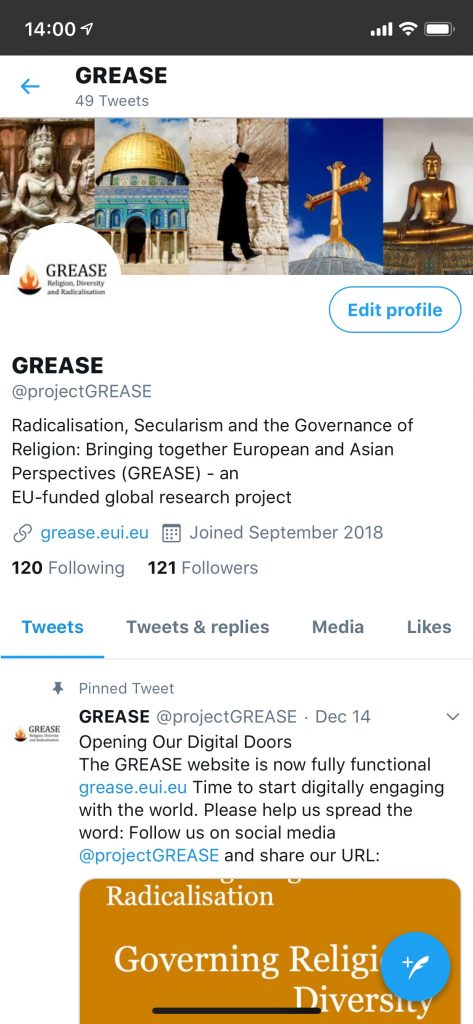
An essential task for GREASE during its launch phase was to establish a digital identity complete with project branding, professional website and social media accounts. Our Berlin-based communications partner SPIA rose to the challenge. Within 90 days of the project’s official start, GREASE had opened its digital doors. The project website (https://grease.eui.eu) features loads of information about our research focus, our geographical coverage, our consortium partners and lots more.
Even though the project is just getting started, visitors to the website can already access a selection of quality content concerning GREASE’s main themes of religious diversity, secularism and radicalisation. The website also features a timeline showing when we do plan to publish our various findings over the next three years.
Users of social media can plug into the project via Twitter and Facebook. in both cases our handle is @projectGREASE.
Analysis of Project-relevant Current Events
The GREASE blog has been launched to provide analysis of current events through the research lens of the GREASE project. All entries are from members of the project consortium and address matters of public concern involving religious diversity, religiously inspired radicalism and secularism.
Our first blog topic: the mosque shootings in Christchurch, New Zealand. The incident has reignited debate about religious diversity, violent radicalism and governance – all topics being investigated by the GREASE research project. Our consortium members bring their individual regional perspectives to bear in assessing the significance of this and other events . Michele Grossman, our principal investigator in Australia and a leading authority on counter-radicalisation in the Asia-Pacific region, delivered the opening blog article. Several other consortium members have contributed as well.
Moving forward, the GREASE blog will feature analysis of other current events of relevance to the project’s research mandate. The blog is a vehicle for public engagement and for capturing the consortium’s unique cluster of expertise.
Italian Filmmaker TERRA to Produce GREASE Films
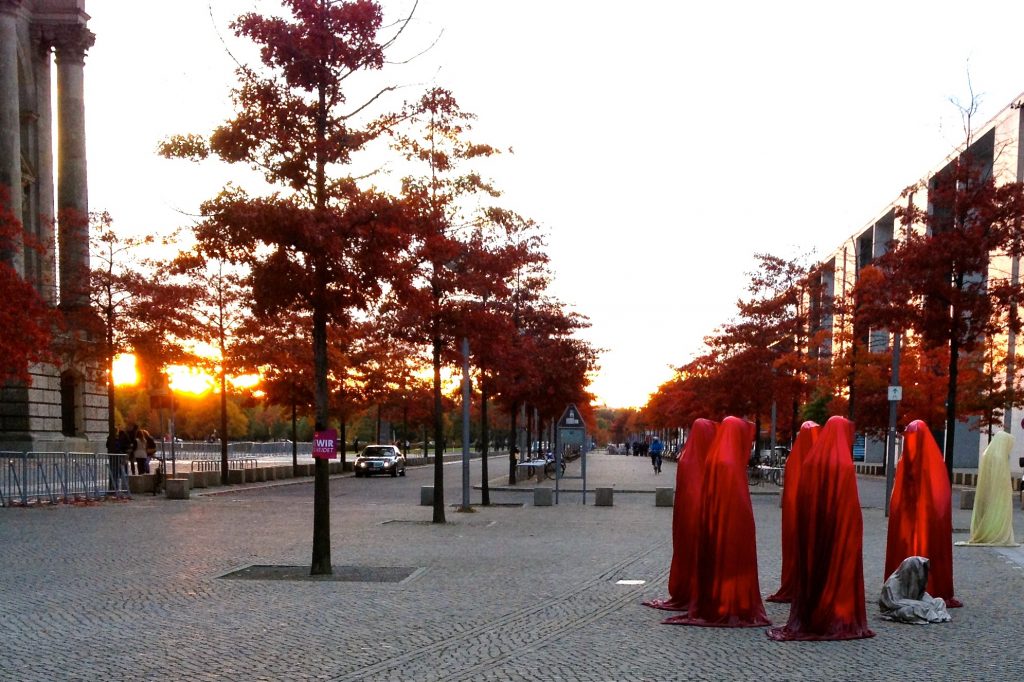
Distinguished Italian filmmaker Diego D’innocenzo (TERRA productions) has been selected to produce two films for the GREASE project. TERRA’s proposal was chosen from over two dozen high-quality offers received from filmmakers around the world.
The two films commissioned by the GREASE project are intended to raise awareness of our main themes – religious diversity governance and preventing radicalisation.
The films will feature exclusive interviews with members of religious communities in Europe, Eurasia, North Africa, the Middle East, South/Southeast Asia and Australia. Anti-radicalisation experts from a diverse range of countries will also be interviewed. The films are slated for release in late 2019.
GREASE Project Presented at EU Commission Workshop on Radicalisation
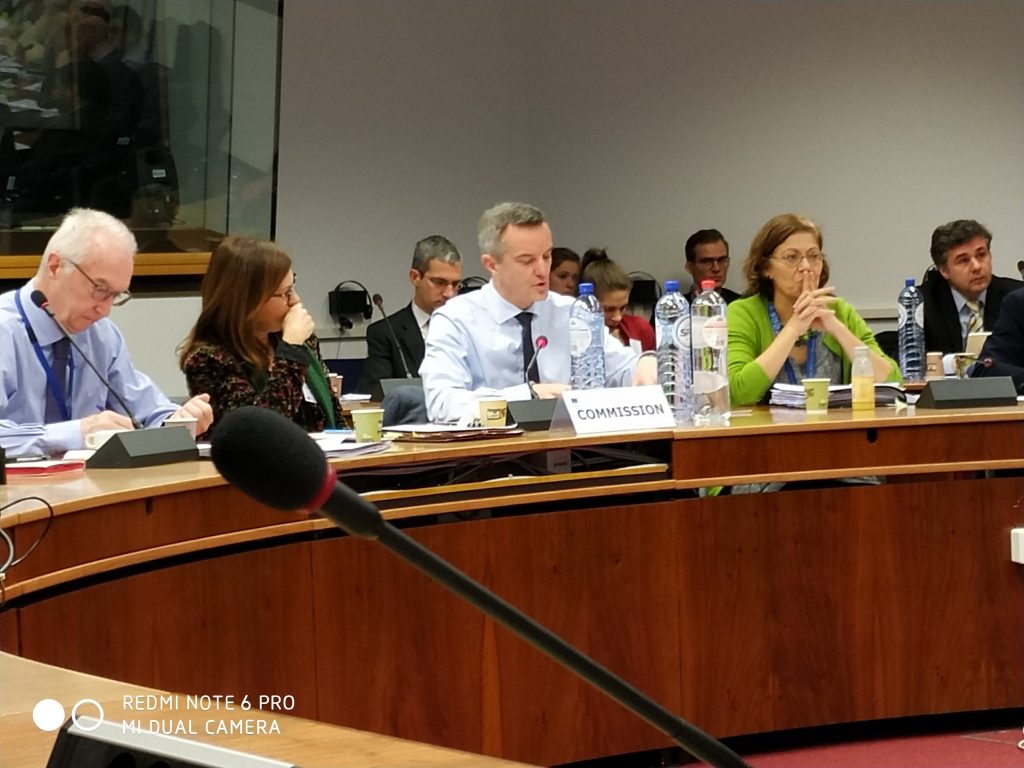
The European Commission Directorate General for Migration and Home Affairs invited GREASE project coordinator Anna Triandafyllidou to participate in a workshop on January 10 in Brussels. Attended by numerous European policymakers, the workshop focused specifically on the topic of radicalisation within “EU-funded projects tackling ideology and polarisation”. The event gave the European Commission an overview of current EU-funded research initiatives in this area and provided project coordinators – including Professor Triandafyllidou – with the opportunity to present their projects and form networks for knowledge sharing.
GREASE Project Launch Event in Morocco
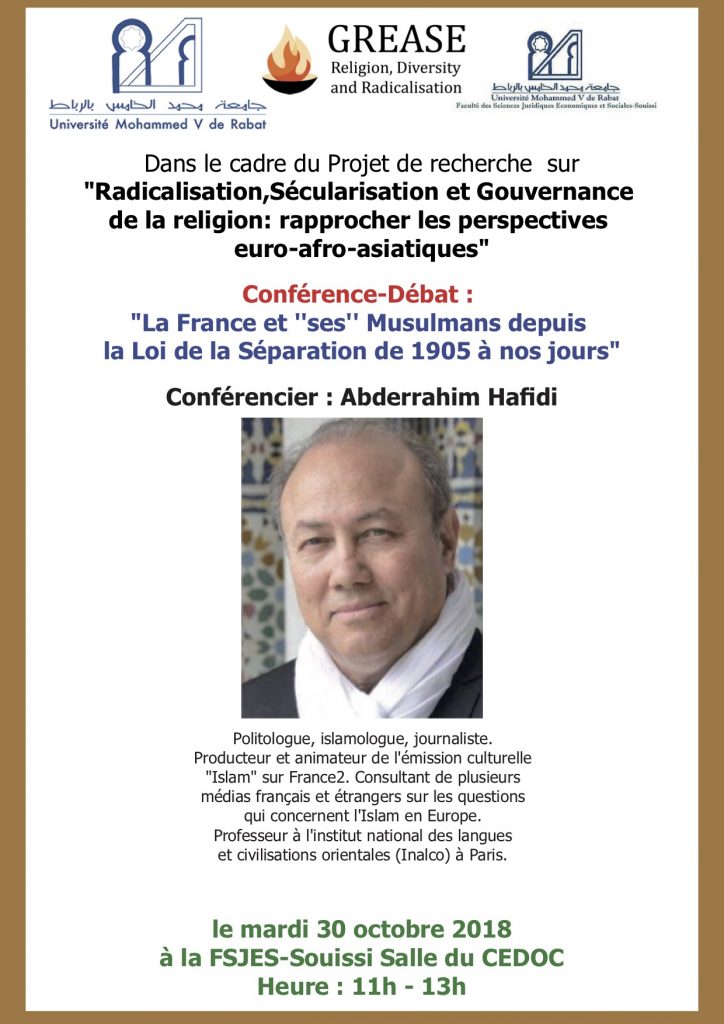
Our project partners at University Mohammad V in Rabat, Morocco, held a launch event for GREASE on October 30. The discussion was moderated by the well-known scholar and journalist Abderrahim Hafidi,
SIGN UP FOR THE GREASE NEWSLETTER



